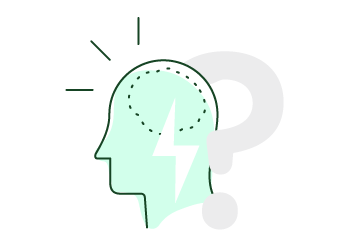Personal Productivity
Social Networks and Productivity: Pros, Cons and Tips
AUTHOR: Francisco Sáez
You are in front of your computer, working on that boring report your boss asked you to do and, damn it, you need a break. So you decide to distract yourself for a few minutes by glancing at your Twitter timeline, or seeing the weekend photos your friends have posted on Facebook.
Is it better or worse for your productivity when you are using social networks instead of actually doing your job? Well, that depends.
Although there are many people—including your boss—who think social networking is a waste of time, some studies show the opposite. Sounds strange, right? How is it possible that doing something that distracts you from doing the task in hand should be considered productive?
According to these studies, it turns out that social networks can bring certain benefits to your personal productivity:
- Your mind takes a much needed rest, so that when you return to resume the task in hand, your attention span is all fresh and renewed.
- By interacting with others through social networks, you improve your ability to do team work.
- If you interact with colleagues, customers, suppliers, etc., social networks help you become a more efficient worker.
- You find interesting ideas and different points of view, and this makes you more creative.
- You learn things, you gain knowledge, and this allows you to find better solutions to problems.
- Social networks show you current consumer trends.
- Very often, those simple conversations taking place in social networks can lead to interesting marketing strategies.
But watch out! Social networks can improve your productivity if you use them properly, but they might destroy it if they become an uncontrolled addiction.
The aforementioned benefits occur only when making moderate use of social networks (usually, that’s less than 20% of your working time). If you spend the whole day on Facebook, obviously your productivity will be a disaster.
Also, you must be very careful with what you say about your company and what you do in general. Do not reveal any information that might be confidential or that could in any way damage the reputation of your company. Today, most companies monitor what their employees—current and former—say about them. You would not be the first person to be fired—or not hired—for some stupid comment on a social network.
In short, if you want social networks to be an ally for your productivity, follow these simple tips:
- Limit access to social networks to two or three times a day. The rest of the time, stay disconnected.
- Disable the notifications sent by Twitter, Facebook, etc. to your devices—unless your job depends on it.
- Have conversations. Efficient use of social networks occurs when you really interact with other people, when you build and nurture relationships.
- Automate post publishing. You don’t need to go into all social networks at all times in order to post interesting links. Use tools like Buffer or Hootsuite to schedule such posts without distracting you from your regular job.
- Read later. If you’re having a five minutes break, do not read the contents of every single link you find interesting, or those five minutes will soon become thirty. Collect those articles a la GTD, on some other place where you can read them quietly at a more appropriate time. Use tools like FacileThings or Pocket for that.
So what tools do you use to manage your social networks productively?




2 comments
Disabling notifications is the first thing I did when I bought a smart phone. Using Buffer was the second.
Disabling notifications is the first thing I did when I bought a smart phone. Using Buffer was the second.
Both good moves, Mitko ;)
Thanks for sharing!
Both good moves, Mitko ;)
Thanks for sharing!